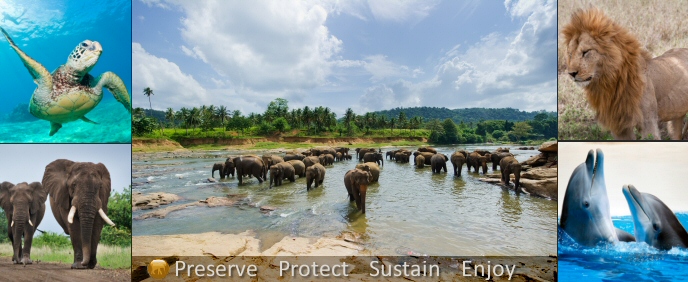
Eco Tours in South East Asia - Sustainable Tourism & Conservation Laws
The many countries that are situated in the Southeast Asia region are extremely diverse in their national attitudes toward environmental law, conservation and tourism, and this shows in their legal approaches to conservation. While the specific laws of each of these countries focus in varying degrees on manageable use, there are few laws that have offer any semblance of regional uniformity. However, there are a few UN resolutions that have been ratified into law by a number of countries in Southeast Asia. These laws are centered primarily around biodiversity and the impact of Ecotourism on local populations.
Thailand and other nations in Southeast Asia have ratified the UN Convention on Biological Diversity, implementing its provisions within their respective governments. The major way in which the convention impacts Ecotourism is that it sets down a definitive set of guidelines for not only how to develop the land and resources, but how they should be shared. For example, the convention states that all development must be done in a way that is sustainable and that promotes a reciprocal relationship with the natural world. It also states that these natural elements cannot be privatized to an extent which would rob the local people of their inherent rights to equal resource access. Due to these provisions, the extent to which Ecotourism financially helps local communities is much more pronounced in the countries that have ratified the convention. Not only do individual communities get more of a say in how their land is developed or used, but they also don't have to worry about privatization cutting off their access to that land. However, this extra level of control at the local level also results in many local wildlife ordinances that are difficult to keep track of. Tourists will need to make sure they fully understand any local customs or regulations regarding what is and is not allowed in the area they are visiting.
While there are a few international conventions that have been adopted by countries in Southeast Asia, it is very important that all tourists travelling here understand a few fundamental facts about how environmental law works in this part of the world. The biggest consideration to keep in mind is the difference between a national law and a provincial law. Many of these countries will have a host of national laws pertaining to the environment, but these are sometimes completely unenforced by local governments, and sometimes wholly supplanted by them. Countries like Vietnam are actually well-known for having a difficult time reconciling national and provincial laws, and this can end up causing troubles for the unwary traveller. This lack of consistency makes it necessary for all travellers to not only understand the national laws of the countries they visit, but also understand the provincial laws for the specific area they visit within that country.
Southeast Asia remains one of the top tourist destinations in the world for a number of reasons. Not only does it contain some of the most primeval forests known to still exist, but it contains a rich cultural heritage that is founded upon the sustainable use of the land. Tourists will find that they can fish, trek, mountaineer, and kayak through some of the most pristine habitat on Earth. There are many animals in this part of the world that are endemic to their respective habitats, making southeast Asia a bastion for those looking to see rare and endangered animals. As the laws governing the sustainable use of resources and land begin to take hold, so too does further Ecotourism development. Some of the countries in this region have even gone so far as to officially state that their conservation strategies have come about in direct response to the rise of the Ecotourism industry.
Even though Southeast Asia is a very popular destination, it's important for Ecotourists to remember that the laws here aren't necessarily cut and dry. What tourists read about national laws during their research may not necessarily apply to the specific province they're visiting, so it's also important for them to learn about the local customs and laws. These laws can often be found by conferring with a local guiding company.

